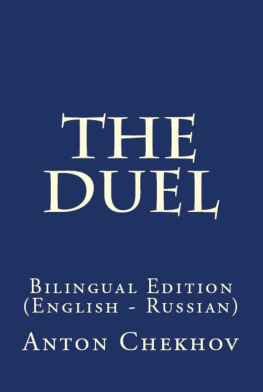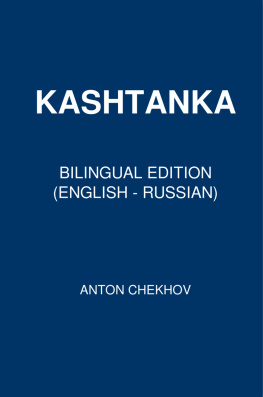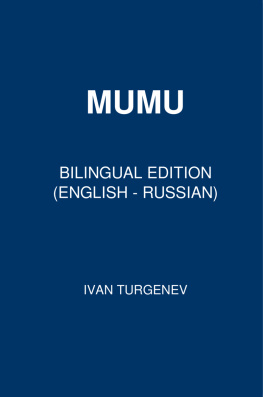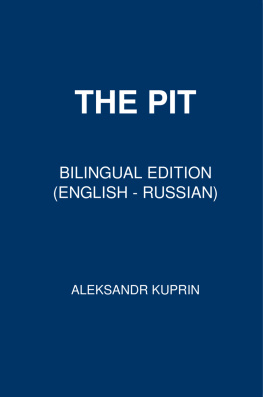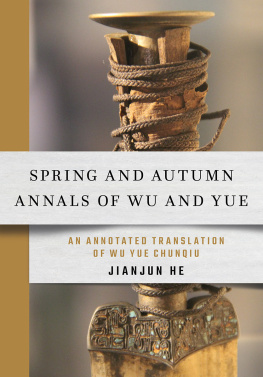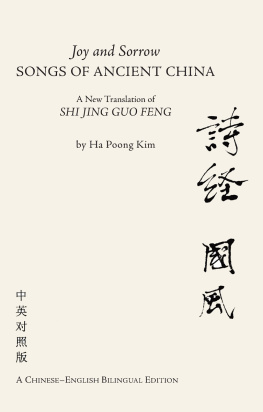Confucius 孔子 - Spring and Autumn Annals: Bilingual Edition, English and Chinese 春秋: Commentary of Zuo 左氏春秋
Here you can read online Confucius 孔子 - Spring and Autumn Annals: Bilingual Edition, English and Chinese 春秋: Commentary of Zuo 左氏春秋 full text of the book (entire story) in english for free. Download pdf and epub, get meaning, cover and reviews about this ebook. year: 2016, publisher: Lionshare Media, genre: Detective and thriller. Description of the work, (preface) as well as reviews are available. Best literature library LitArk.com created for fans of good reading and offers a wide selection of genres:
Romance novel
Science fiction
Adventure
Detective
Science
History
Home and family
Prose
Art
Politics
Computer
Non-fiction
Religion
Business
Children
Humor
Choose a favorite category and find really read worthwhile books. Enjoy immersion in the world of imagination, feel the emotions of the characters or learn something new for yourself, make an fascinating discovery.

- Book:Spring and Autumn Annals: Bilingual Edition, English and Chinese 春秋: Commentary of Zuo 左氏春秋
- Author:
- Publisher:Lionshare Media
- Genre:
- Year:2016
- Rating:5 / 5
- Favourites:Add to favourites
- Your mark:
- 100
- 1
- 2
- 3
- 4
- 5
Spring and Autumn Annals: Bilingual Edition, English and Chinese 春秋: Commentary of Zuo 左氏春秋: summary, description and annotation
We offer to read an annotation, description, summary or preface (depends on what the author of the book "Spring and Autumn Annals: Bilingual Edition, English and Chinese 春秋: Commentary of Zuo 左氏春秋" wrote himself). If you haven't found the necessary information about the book — write in the comments, we will try to find it.
Confucius 孔子: author's other books
Who wrote Spring and Autumn Annals: Bilingual Edition, English and Chinese 春秋: Commentary of Zuo 左氏春秋? Find out the surname, the name of the author of the book and a list of all author's works by series.
Spring and Autumn Annals: Bilingual Edition, English and Chinese 春秋: Commentary of Zuo 左氏春秋 — read online for free the complete book (whole text) full work
Below is the text of the book, divided by pages. System saving the place of the last page read, allows you to conveniently read the book "Spring and Autumn Annals: Bilingual Edition, English and Chinese 春秋: Commentary of Zuo 左氏春秋" online for free, without having to search again every time where you left off. Put a bookmark, and you can go to the page where you finished reading at any time.
Font size:
Interval:
Bookmark:
Spring and Autumn Annals
Compiled by Confucius
Commentary of Zuo
Warring States (490-221BC)

BilingualStudy Edition
Chinese/English Side-by-Side
English Translation by James Legge
LionshareChinese Classics
Translationby James Legge, 1872
Bilingual Study Edition Copyright 2016 Lionshare Media

1. - Book 1 Duke Yin
1. [It was his] first year, the spring, the king's firstmonth.
2. In the third month, the duke and Yifu of Zhu made acovenant in Mie.
3. In summer, in the fifth month, the earl of Zheng overcameDuan in Yan.
4. In autumn, in the seventh month, the king [by] Heaven's[grace] sent the [sub] administrator Xuan with a present of [two] carriages andtheir horses for the funerals of duke Hui and [his wife] Zhong Zi.
5. In the ninth month, [the duke] and an officer of Songmade a covenant in Su.
6. In winter, in the twelfth month, the earl of Zhai came[to Lu].
7. Gongzi Yishi died.
Commentary
Title of the Work.'The Spring and Autumn; with the Zuo zhuan.' 'Spring and Autumn' is equivalentto 'Annals, digested under the four seasons of every year,' only two seasonsbeing given for the sake of brevity. The subject of the name is fully discussedin the Prolegomena, ch. I. I have printed all the text of Zuo Qiuming,immediately after the year of the Classic to which it belongs. Where hisremarks are simply comments on the text, I have embodied them with my ownnotes. His narratives, however, are all translated entire, and the additionalnarratives which he gives, not belonging to events referred to in the text, andindicated by a (),are included in the notes, within brackets.
Title of the Book. ,'Duke Yin.' Of the 12 dukes of Lu, whose years are chronicled in the Chunqiu,Yin is the first, his rule extending from B.C. 721711. From the establishment of Boqin, son ofthe famous duke of Zhou, as marquis of Lu, in B.C. 1,114, there had been 13chiefs. Yin's father and predecessor, duke Hui (), married first a daughterof the House of Song ();and on her death he supplied her place with Sheng Zi (), one of her relatives whohad followed her from Song to the harem of Lu. This lady was the mother of Yin;but duke Hui by and by took as a second wife the daughter of the duke Wu () of Song, called . Acc. to Zuoshi,she had been born with some remarkable lines on one of her hands, which wereread as meaning that she would become marchioness of Lu. By her Hui had a sonof higher dignity than Yin, in consequence of the superior position of hismother, and who afterwards made himself duke Huan. This child being too youngto take charge of the State on his father's death, was set aside in favour ofYin, who, however, only considered himself as occupying in room of his youngerbrother till the latter should come of age.
Yin's name was Xigu (), Yin being the honorary or sacrificial titleconferred after his death, and meaning,'Sorrowfully swept away, unsuccessful ().'
Lu was only a marquisate. Its chiefs were not dukes.Throughout the Chunqiu, however, we find the chiefs even of the smaller Statesall dignified with the title of 'duke' after their death. Mao Qilingingeniously explains this as an instance of the style of the'historiographers,' referring to the commencing words in 'The Speech at Bi'(Shu V. xxix.) ,whereas, in the Preface to the Shu, par. 66, instead of , we read , 'the marquis of Lu.' Theconfusion which is caused, however, by the practice, in the narratives of ZuoQiuming is very great, as he uses now the name with the title of rank, and nowthe honorary name and title of duke, with the most entire indifference.
Yin's 1st year synchronized with the 49th of king Ping (); the 9th year ofXi of Qi ();the 2d of E of Jin (); the 11th of Zhuang of Quwo ();the 13th of Huan of Wey ();the 28th of Xuan of Cai (); the 22d of Zhuang of Zheng (); the 35th of Huan of Cao ();the 23d of Huan of Chen ();the 29th of Wu of Qi ();the 7th of Mu of Song ();the 44th of Wen of Qin ();and the 19th of Wu of Chu ().
Par. 1. This paragraph, it will be seen, is incomplete, theadjunct merely of a ,which is found at the beginning of nearly every other book. The reason of theincompleteness will be considered below.
,'the 1st year.' The Eryaexplains by 'the beginning,' 'first,'and Gongyang makes the phrase simply , 'the prince's 1st year.' Du Yu tries to find a deeper meaning in the phrase,saying that the 1st year of a rule stands to all the following years in therelation of the original chaos to the subsequent kosmos, and is thereforecalled yuan, to intimate to rulers that from the first moment of their swaythey are to advance in the path of order and right. This consideration explainsalso, he thinks, the use of ,'the right month,' for 'the 1st month ( ).'The Erya, however, gives as , 'the mostelevated,' 'the senior.' But in the denomination of the 1st month as 'the rightor correct month,' we must acknowledge a recognition of what are called 'thethree zheng (),'the three different months, withwhich the dynasties of Xia, Shang, and Zhou commenced the year. Xia began theyear with the 1st month of spring; Shang, a month, and Zhou, 2 months earlier.It became so much a rule for the beginning of the year to be changed by everynew dynasty, that Qin made its first month commence a lunation before that ofZhou. To a remark of Confucius, Ana. XV. x., we are indebted for the disuse ofthis foolish custom, so that all dynasties have since used 'the seasons ofXia.'After all, thereremains the question why the first month of the year should be called zheng ().
,'the king's first month.' The'king' here can hardly be any other than Ping, the king of Zhou for the timethen being, as Du Yu says;andin this style does the account of very many of the years of the Chunqiu begin,as if to do homage to the supremacy of the reigning House. Gongyang makes theking to be Wen; but though he was the founder of the Zhou dynasty, the commencementof the year was not yet changed in his time.
The remaining character in this par. occasions the foreignstudent considerable perplexity. The commencement of the year was really in the2d month of winter, and yet it is here said to have been in the spring..We have spring when it really was not spring. It must be kept in mind that theusual names for the seasons,only denote in the Chunqiu the four quarters of the Zhou year, beginning withthe 2d month of winter. It was, no doubt, a perception of the inconvenience ofsuch a calendar which made Confucius, loyal as he was to the dynasty of Zhou,say that he preferred that of Xia to it. Strange as it is to read of spring,when the time is really winter, and of winter when the season is still autumn,it will appear, as we go on, that such is really the style of the Chunqiu. Mao,fully admitting all this, yet contends for a strange interpretation of thetext, in which he joins and together,making the phrase to stand for the kings of Zhou,'Spring kings,' who reigned by the virtue ofwood, the first of the five elements ().He presses, in support of this view, the words of Zuoshi on this paragraph, ,which show, he says, that Zuoshi joined with ,as he himself would do; but Zuoshi's language need not be so construed, and evidently stands byitself, just as the names of the other seasons do.
We come now to the incompleteness of the par., alreadypointed out. According to the analogy of the style in the first years of otherdukes, it should be stated that in his 1st year and the 1st month of it, theduke took the place ()of his predecessor. According to the rule of Zhou, on the death of asovereignand all the princes were little kings in their several States hissuccessor, acknowledged to be such as the chief mourner on the occasion andtaking the direction of the proper ceremonies for the departed, 'ascended thethrone by the bier.' There is an interesting account of such an accession inthe Shu, V. xxii. The thing was done so hurriedly because 'the State could notbe a single day without a sovereign () ,' or because, as we phrase it,'the king never dies.' What remained of the year, however, was held to belongto the reign of the deceased king, and the new reign began with the beginningof the next year, when there was a more public 'taking of the place,' though Ido not know that we have any account of the ceremonies which were thenperformed. The first 'placetaking' was equivalent to our 'accession;' the second,to our 'coronation.' The proper explanation, therefore, of the incompletenessof the paragraph is that Yin omitted the ordinary 'placetaking' ceremonies, andof course there could be no record of them. Perhaps he made the omission,having it in mind to resign ere long in favour of his younger brother (so,Zuoshi); but to say that the usual was here omitted by Confucius, either to show his approval or disapproval ofYin, as Guliang does, followed by Hu An'guo (), A.D. 1,0741,138) and a hundred other commentators, isnot to explain the text, but to perplex the reader with vain fancies.
Font size:
Interval:
Bookmark:
Similar books «Spring and Autumn Annals: Bilingual Edition, English and Chinese 春秋: Commentary of Zuo 左氏春秋»
Look at similar books to Spring and Autumn Annals: Bilingual Edition, English and Chinese 春秋: Commentary of Zuo 左氏春秋. We have selected literature similar in name and meaning in the hope of providing readers with more options to find new, interesting, not yet read works.
Discussion, reviews of the book Spring and Autumn Annals: Bilingual Edition, English and Chinese 春秋: Commentary of Zuo 左氏春秋 and just readers' own opinions. Leave your comments, write what you think about the work, its meaning or the main characters. Specify what exactly you liked and what you didn't like, and why you think so.

